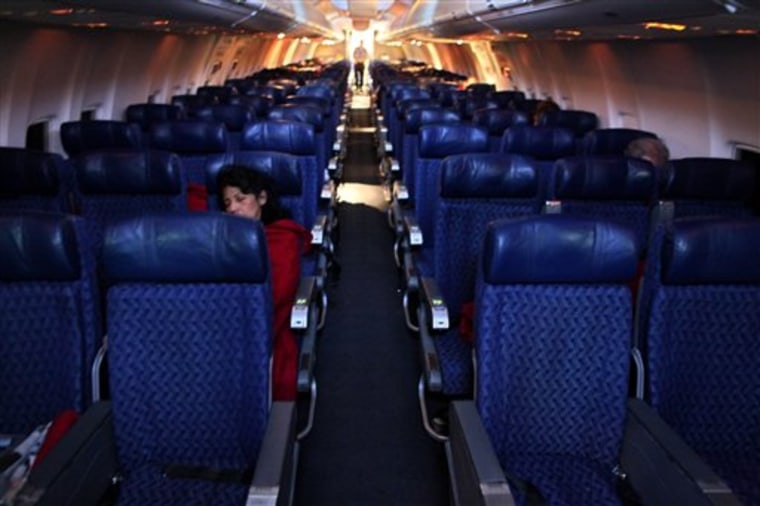The music of James Brown plays to an empty Starbucks. A woman has virtually an entire airliner to herself as she flies into Mexico City. Beach chairs go begging on Cancun's sugary sand.
Already hammered by the global economic downturn and spiraling drug violence, Mexico now adds a public health crisis to its list of economic plagues. Commerce has come to a crawl in the flu-spooked capital. Tourism is tanking as fears fuel trade and travel bans.
One local newspaper called it "an epidemic of losses."
Mexico City's Chamber of Commerce said the closures and cancellations are costing 777 million pesos ($57 million) a day in the capital city alone — more than a third of the local economy.
Some of that drop is the result of frightened residents staying off the streets. The rest has come from an increasingly severe series of government-mandated closures, from schools to movie theaters, restaurants to pool halls, soccer games to the famous pyramids.
Mayor Marcelo Ebrard acknowledged Wednesday that the bans are unpopular, but said without them the virus could spread even faster.
"And if that happens," he said, "the damage to the economy, to unemployment, to revenues, to the city will be much worse."
Mexico's central bank predicted Wednesday that the country's $880 billion economy could contract up to 4.8 percent this year — and those projections were done even before the impact of the epidemic is calculated.
Now some of the economy's biggest draws are being curtailed by swine flu.
Mexico has cut short the San Marcos Fair, known as the Super Bowl of cockfighting and bullfighting, a 181-year-old festival that draws 7 million people to northern Aguascalientes state for three weeks each year. Folk dancers packed ribboned gowns and fighters put strutting birds back in their cages on Sunday as they closed after only a week.
The colonial city of Puebla, already reeling from automotive industry woes at its Volkswagen plant, canceled its traditional Cinco de Mayo parade, which marks Mexico's victory there over French soldiers on May 5, 1862.
"There is not much to celebrate," said state tourism spokesman Joaquin Zepeda. "There are only more things to lament."
In the industrial northern city of Monterrey, Danish toy maker Lego closed its plant, which employs 400 workers, until next week.
The country's biggest income-generator, state-run oil company Petroleros Mexicanos, said pregnant and nursing workers are staying home but operations have not been affected.
Worst hit are Mexico's commercial and service sectors. Aurora Medina said sales are down 90 percent at her food stall in the sprawling market of La Merced, where she has worked for 52 years.
"It's really hard," said Medina, ladling out homemade chicken soup. "My husband has a heart condition and diabetes and can't work. We have no savings."
Tourism, a top source of revenue for Mexico, is taking a giant hit, and analysts say it will take an intense publicity campaign to win travelers back.
Cuba banned flights to Mexico. Argentina banned flights out of Mexico. France said Wednesday it would ask the European Union to suspend all flights to Mexico.
U.S., Canadian, Japanese and European tour operators, from Thomas Cook to Carnival Cruise Lines, are canceling trips.
Only a smattering of tourists could be found stretched out on the beaches of Cancun, Mexico's top vacation destination, as virtually empty planes flew in Wednesday.
"We estimate that bookings have dropped 30 percent, and the problem will only get worse," said Rodrigo de la Pena, president of the Cancun hotel association.
Martha Ortiz, who makes a living braiding tourists' hair in the heart of the hotel zone, said there are fewer and fewer people every day.
"In the last few days, I haven't made enough even to put food on the table," she said.
